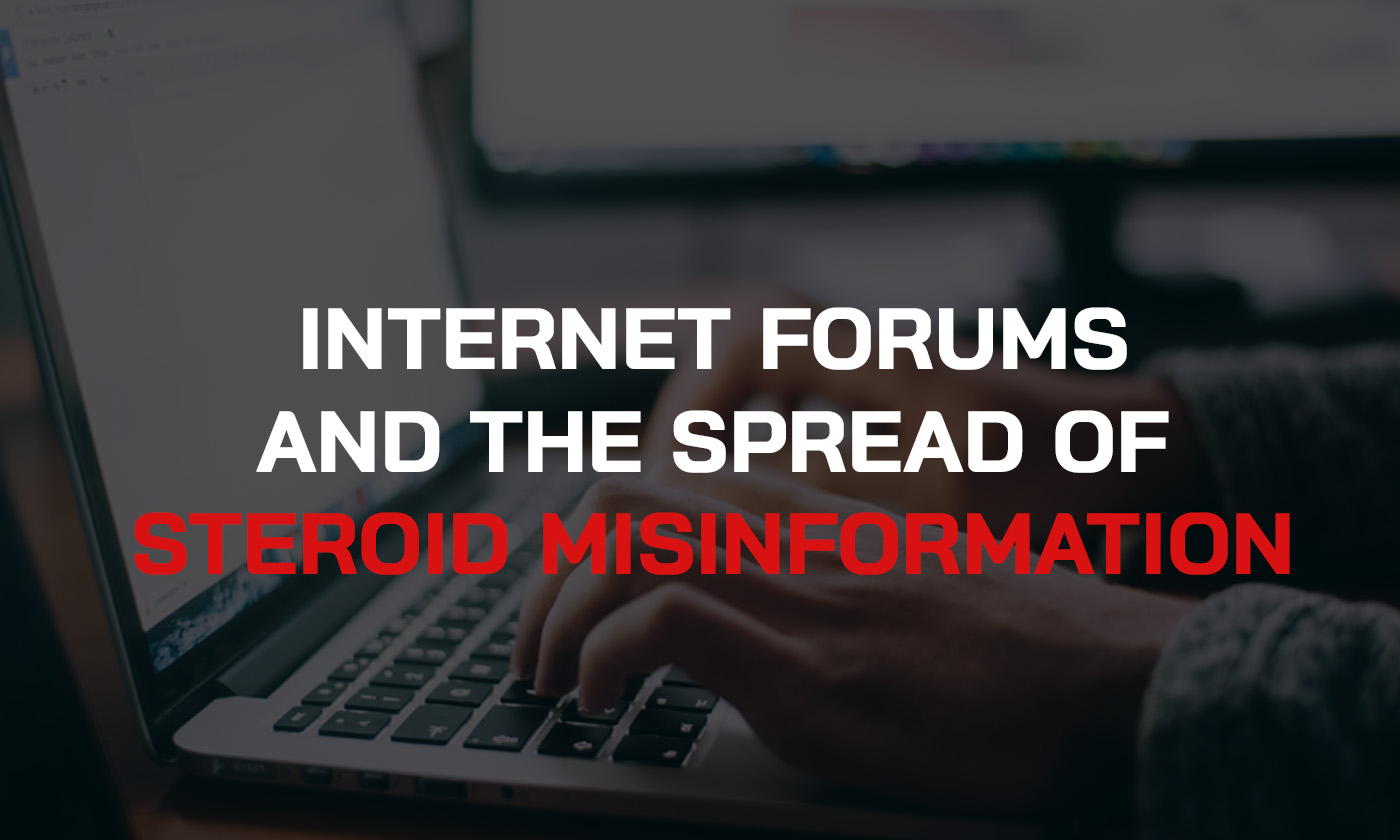Your basket is currently empty!
Internet Forums and the Spread of Steroid Misinformation

In the digital age, the internet has become a double-edged sword for information sharing. While it offers unprecedented access to knowledge, it also creates fertile ground for misinformation. This duality is particularly evident in discussions surrounding anabolic steroids, where internet forums play a pivotal role.
These platforms, often unregulated and anonymous, allow users to share experiences, advice, and guidance about steroids. While they provide a sense of community, they also perpetuate myths, encourage risky behaviors, and spread misinformation that can have serious health consequences. This article explores the dynamics of internet forums in the context of steroid culture, analyzing how they propagate misinformation and what can be done to address the issue.
The Role of Internet Forums in Steroid Culture
Internet forums, such as dedicated bodybuilding sites and general fitness communities, have become hubs for discussions about steroids. These platforms serve several purposes for users, including:
- Seeking Advice: Beginners often turn to forums for guidance on how to start using steroids, including dosing, cycles, and sourcing.
- Sharing Experiences: Experienced users share their journeys, including perceived benefits and side effects, often framing their stories in ways that normalize or glamorize steroid use.
- Creating Community: Forums provide a sense of camaraderie for users who feel judged or isolated in other aspects of their lives due to their interest in steroids.
While these forums offer valuable support for some, they also act as echo chambers, amplifying misinformation and enabling harmful behaviors.
Common Types of Steroid Misinformation
Steroid misinformation on internet forums takes many forms, ranging from outright falsehoods to misleading half-truths. Some of the most common types include:
- Overstating Benefits
Many forum users highlight the dramatic physical transformations made possible by steroids, often presenting these results as quick and effortless. They downplay or omit the rigorous training, nutrition, and genetic predispositions required to achieve such results, leading others to develop unrealistic expectations. - Minimizing Risks
Discussions about side effects are frequently met with dismissive comments, suggesting that adverse effects are rare, exaggerated, or easily managed. This leads to a dangerous underestimation of the health risks associated with steroid use, such as cardiovascular damage, liver toxicity, and hormonal imbalances. - Promoting Dangerous Practices
Some forums encourage reckless behaviors, such as excessive dosing, “stacking” multiple steroids without proper understanding, or using experimental substances that lack safety data. - Misinformation About Legality
Users often share incorrect information about the legal status of steroids, creating confusion about what is permitted in different countries. This can lead to unintended legal consequences for those seeking to purchase or use steroids. - Endorsing Unverified Sources
Forums frequently include discussions about where to buy steroids, often recommending unregulated or illicit sources. These products can be counterfeit, contaminated, or dosed incorrectly, posing significant risks to users.
The Psychology Behind Steroid Misinformation
The spread of misinformation on forums is driven by several psychological and social factors:
- Confirmation Bias: Users often seek information that aligns with their preconceived beliefs or desires. For example, someone eager to start using steroids may gravitate toward posts that downplay risks or highlight success stories.
- Anonymity: The anonymity of forums allows users to share exaggerated or fabricated stories without accountability, contributing to the spread of false information.
- Echo Chambers: Like-minded users reinforce each other’s beliefs, creating an environment where dissenting opinions or evidence-based information are dismissed.
- Influence of “Experts”: Forums often feature self-proclaimed experts who gain credibility through frequent posting or technical jargon, regardless of their actual qualifications.
The Impact of Steroid Misinformation
The misinformation spread on internet forums has far-reaching consequences, affecting both individuals and society at large:
- Health Risks
Users who rely on inaccurate information may engage in unsafe practices, such as improper dosing, combining incompatible substances, or neglecting necessary health monitoring. This can lead to severe health problems, including organ damage, hormonal disruptions, and psychological issues. - Normalization of Steroid Use
Forums contribute to the perception that steroid use is commonplace and acceptable, particularly in fitness and bodybuilding communities. This normalization can pressure individuals to use steroids to meet unrealistic body image standards. - Undermining Trust in Professionals
By prioritizing anecdotal advice over evidence-based guidance from medical professionals, forums erode trust in the healthcare system. Users may avoid seeking professional help or dismiss warnings from credible sources. - Legal and Ethical Concerns
The promotion of unregulated steroid markets and the casual discussion of illegal activities on forums can have broader legal and ethical implications, including contributing to the black-market economy.
Addressing the Spread of Misinformation
Combating steroid misinformation on internet forums requires a multi-faceted approach involving individuals, the fitness industry, and broader societal efforts:
- Education
Public health campaigns should provide accurate information about steroids, emphasizing their risks and the importance of consulting qualified professionals. - Platform Regulation
Forum moderators and platform administrators must take a more active role in identifying and removing harmful content, while promoting evidence-based discussions. - Promoting Credible Voices
Experts in sports medicine, endocrinology, and fitness should actively engage in online discussions, countering misinformation with factual, science-backed insights. - Encouraging Critical Thinking
Users should be encouraged to critically evaluate the information they encounter, seeking corroboration from reputable sources rather than accepting claims at face value. - Community Interventions
Fitness communities can help by fostering a culture that values natural achievements and health over risky shortcuts, reducing the demand for steroid-related advice.
The Future of Steroid Discussions Online
As technology evolves, internet forums may give way to newer platforms and methods of information sharing. However, the underlying dynamics of misinformation will remain relevant. By addressing the root causes of misinformation and creating environments that prioritize truth, the fitness community can build a healthier, more informed culture.
10 Common Questions About Steroid Misinformation
- Why do people turn to internet forums for steroid advice?
Internet forums offer anonymity, accessibility, and a sense of community, making them attractive for users seeking guidance without judgment. - What are the risks of following forum advice on steroids?
Forum advice often lacks scientific backing and can lead to unsafe practices, health complications, and legal issues. - How common is steroid misinformation online?
Steroid misinformation is widespread on unregulated forums, where anecdotal advice often outweighs evidence-based information. - Why do forums minimize the risks of steroids?
Users may downplay risks due to confirmation bias, a lack of understanding, or the desire to promote their own decisions. - What is “stacking” in steroid use?
Stacking refers to combining multiple steroids to enhance effects, a practice often discussed on forums with little regard for safety. - Can forums provide any reliable information about steroids?
While some forums include knowledgeable users, separating accurate advice from misinformation is challenging without prior expertise. - Are there legal consequences for discussing steroids online?
In some jurisdictions, promoting or facilitating the purchase of illegal steroids on forums can lead to legal repercussions. - How can users identify misinformation on forums?
Users should verify claims with credible sources, such as peer-reviewed studies or licensed medical professionals, before acting on advice. - What are safer alternatives to forums for steroid information?
Consulting sports physicians, endocrinologists, or certified fitness trainers is far safer and more reliable than relying on forums. - How can society combat steroid misinformation?
Education, platform regulation, and community efforts to promote accurate information and natural fitness can reduce misinformation’s impact.
A New Perspective on Information Sharing
The internet has reshaped how people access and share information, but its unregulated nature comes with significant risks. For those navigating the complex world of steroids, the prevalence of misinformation on forums underscores the importance of critical thinking and evidence-based knowledge. By fostering a culture of accountability and accuracy, the fitness community can help ensure that the pursuit of health and strength does not come at the cost of truth—or safety.











